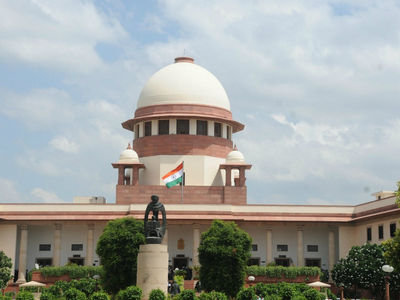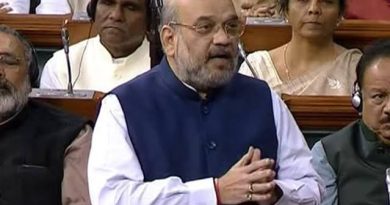Uphaar tragedy: Supreme Court dismisses curative plea by victims; no further jail term for Ansal brothers
New Delhi: The Supreme Court on Thursday dismissed the curative petition filed by an association of the victims of the 1997 Uphaar cinema fire tragedy case, sparing the Ansal brothers further jail term. A three-judge bench comprising Chief Justice S A Bobde, and justices N V Ramana and Arun Mishra considered the curative plea by the Association for Victims of Uphaar Tragedy (AVUT) in-chamber and dismissed it. “We have gone through the curative petitions and the relevant documents. In our opinion, no case is made out…. Hence, the curative petition is dismissed,” the bench said in its order.
On February 9, 2017, the apex court had by a 2:1 majority verdict given relief to 78-year-old Sushil Ansal considering his “advanced age-related complications” by awarding him the jail term which he had already served. It had, however, asked his younger sibling Gopal Ansal to serve the remaining one year jail term in the case.
The AVUT, through its president Neelam Krishnamoorthy, had sought reconsideration of the verdict by filing the curative plea. The apex court had in August 2015 allowed the Ansals to walk free and asked them to pay a fine of Rs 30 crore each.
On June 13, 1997, halfway through the screening of Hindi film “Border”, a fire broke out in Uphaar Cinema, situated in Green Park area here. Fifty-nine people had died of asphyxia, while over 100 others were injured in the ensuing stampede.
What is Uphaar Tragedy:
The Uphaar Cinema fire was one of the worst fire tragedies in recent Indian history. The fire started on Friday, 13 June 1997 at Uphaar Cinema in Green Park, Delhi during the three o’clock screening of the movie Border. Fifty-nine people were trapped inside and died of asphyxiation, while 103 were seriously injured in the resulting stampede.
The victims and the families of the deceased later formed The Association of Victims of Uphaar Fire Tragedy (AVUT), which filed the landmark civil compensation case. It won ₹25 crore (equivalent to ₹47 crore or US$6.6 million in 2018) in compensation for the families of the victims. The case is now considered a breakthrough in civil compensation law in India. However, on 13 October 2011, the Supreme Court nearly halved the sum of compensation awarded to victims by the Delhi high court, and slashed punitive damages to be paid by cinema owners, the Ansal brothers, from ₹2.5 crore (equivalent to ₹3.9 crore or US$540,000 in 2018) to ₹25 lakh (equivalent to ₹39 lakh or US$54,000 in 2018).
In its final order on August 25, 2015, the Supreme Court modified its earlier order and sentenced the Ansal brothers to a two-year jail term if they failed to pay the families of the victims Rs.30 crore each within three months.The Supreme Court reviewed this order again on February 9, 2017, and sentenced Gopal Ansal to a year in jail for the case. The other accused, Sushil Ansal, did not have to serve a further sentence because of his old age.




